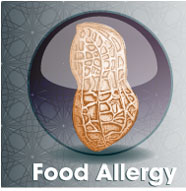 Last month, we looked at the distinguishing characteristics between psoriasis and eczema in the first of this two part series, Differences Between Psoriasis and Eczema. These differences are important to recognize. However, in addition to often similar physical presentation, psoriasis and eczema may share some of the same underlying causes and triggers. Furthermore, many of the same treatment methods may be used to manage the symptoms of both conditions. Here are some takeaway points regarding treatments and products that can help alleviate the symptoms of both conditions.
Last month, we looked at the distinguishing characteristics between psoriasis and eczema in the first of this two part series, Differences Between Psoriasis and Eczema. These differences are important to recognize. However, in addition to often similar physical presentation, psoriasis and eczema may share some of the same underlying causes and triggers. Furthermore, many of the same treatment methods may be used to manage the symptoms of both conditions. Here are some takeaway points regarding treatments and products that can help alleviate the symptoms of both conditions.
Allergies as a Cause of Psoriasis and Eczema
As we know, eczema and allergies are often closely intertwined. Although psoriasis is not linked to any particular allergens, the immune system plays a key role in both allergies and psoriasis, as this WebMD.com slideshow 10 Psoriasis Triggers points out.
Specifically, the link between allergies and psoriasis is related to the cells responsible for allergic reactions, such as swelling and itching. These cells are inflammatory mast cells, which researchers have found in greater numbers in psoriasis patients. Hence, although psoriasis is not proven to be an allergic reaction, the cells responsible for allergic reactions are at play.
 Food allergies are also thought by some to be a root cause of some cases of psoriasis. NutraMed.com discusses this:
Food allergies are also thought by some to be a root cause of some cases of psoriasis. NutraMed.com discusses this:
“The process [of immune activity in psoriatic skin] begins with the presence of food antigens in the skin. Food proteins that enter the body through a leaky digestive tract can make their way into the skin and invite immune cells to attack. This is a delayed pattern immune response that occurs slowly and is usually not noticed by psoriasis patients and is not detected by any office or laboratory test.”
Further corroborating this link between food allergies and psoriasis is the fact that many psoriasis patients often respond to food changes such changes in the diet. There are a variety of programs like these available online (most with dubious claims), but the idea behind them can be helpful, mainly, attempt to remove “problem foods” in order to treat various diseases.
Cold, Dry Weather Triggers Psoriasis and Eczema
.jpg) Eczema flare-ups increase as cold, dry weather sets in — and not just from the dry air outside. Forced air heating dries indoor air as well. Any eczema patient (or parent of a child with eczema) knows that staying moisturized is key to keeping eczema symptoms at bay.
Eczema flare-ups increase as cold, dry weather sets in — and not just from the dry air outside. Forced air heating dries indoor air as well. Any eczema patient (or parent of a child with eczema) knows that staying moisturized is key to keeping eczema symptoms at bay.
The same is true of psoriasis. WebMD puts it this way: “Winter can be especially hard on those who live with psoriasis. Cold, dry weather can worsen psoriasis, while warm, sunny climates may help alleviate it.”
Treating Psoriasis and Eczema with Moisturizing, Humidifying, and More
The Psoriasis Triggers slideshow advises, “Keep your skin well moisturized. Use thick, creamy lotions after showers and baths and throughout the day. Look for lotions and soaps that are fragrance-free and designed for sensitive skin to help reduce irritation.” Sound familiar? These are the same precautions that eczema-prone individuals should take.
 Humidifying during cold, dry conditions, such as during the winter, can also go a long way in preventing psoriasis and eczema flare-ups. Keep ambient air properly moisturized with humidifiers.
Humidifying during cold, dry conditions, such as during the winter, can also go a long way in preventing psoriasis and eczema flare-ups. Keep ambient air properly moisturized with humidifiers.
As mentioned above when discussing food allergies, psoriasis and eczema may both be addressed by either including particular nutrients in the diet — such as fish oil, other omega 3-rich foods, and vitamin D — or by excluding foods that a patient is sensitive or allergic to. Diet seems to play a key, if often underlying, role in both conditions.
Paying attention to some basic matters that can help either prevent or alleviate symptoms of psoriasis and eczema can drastically improve these conditions. As always, education is paramount, and having the tools to implement what’s learned through education can provide improved quality of life.
